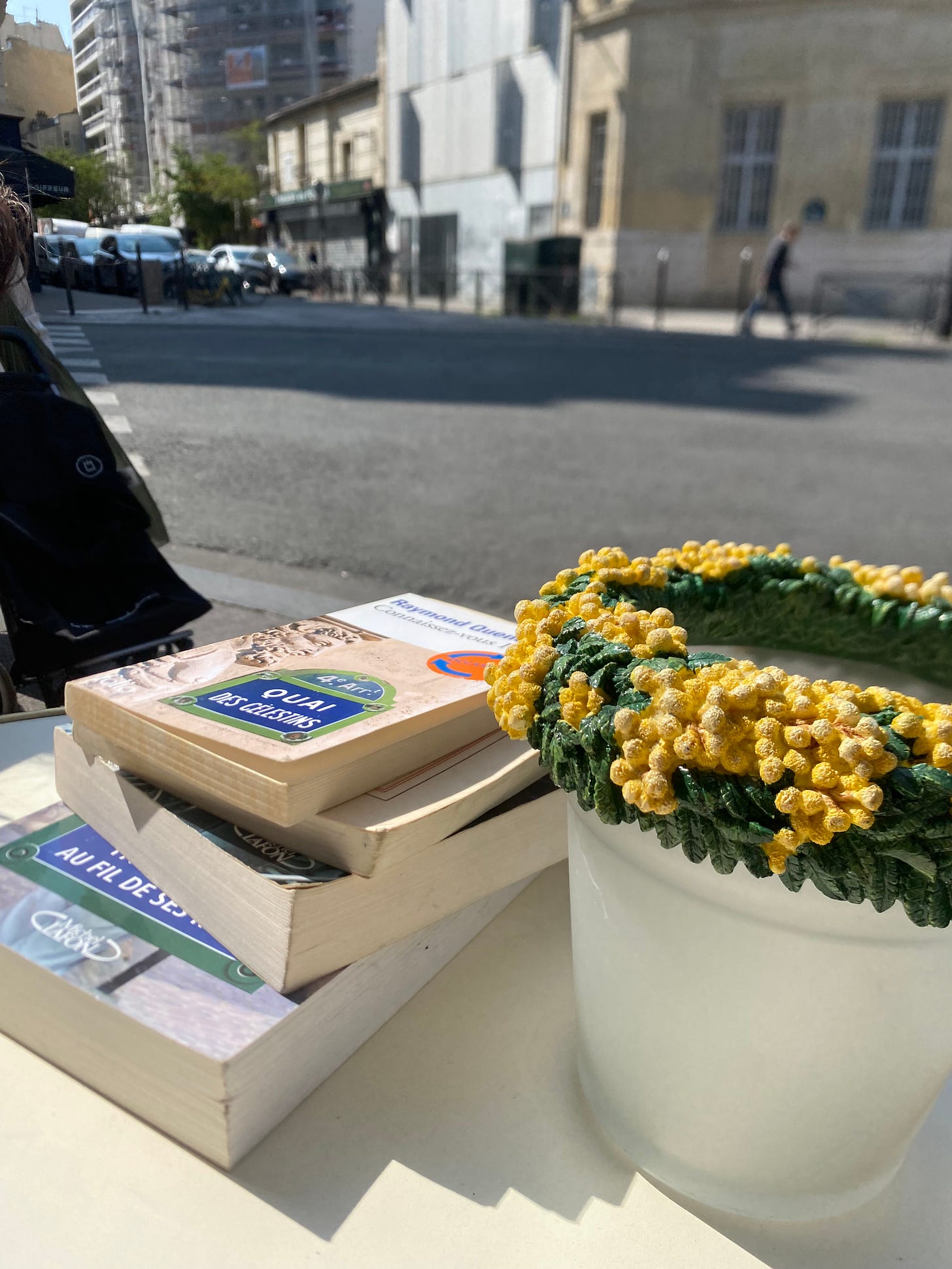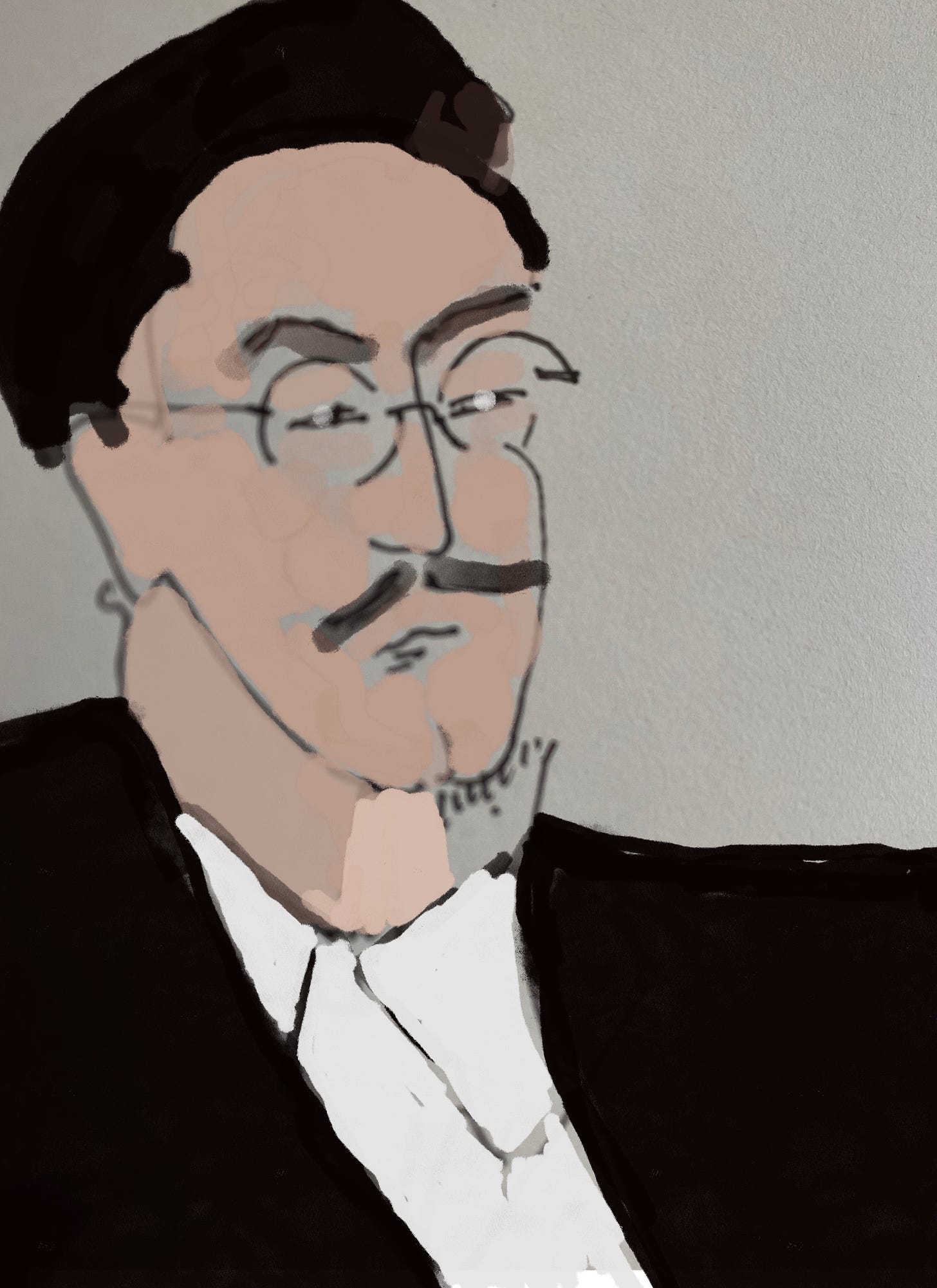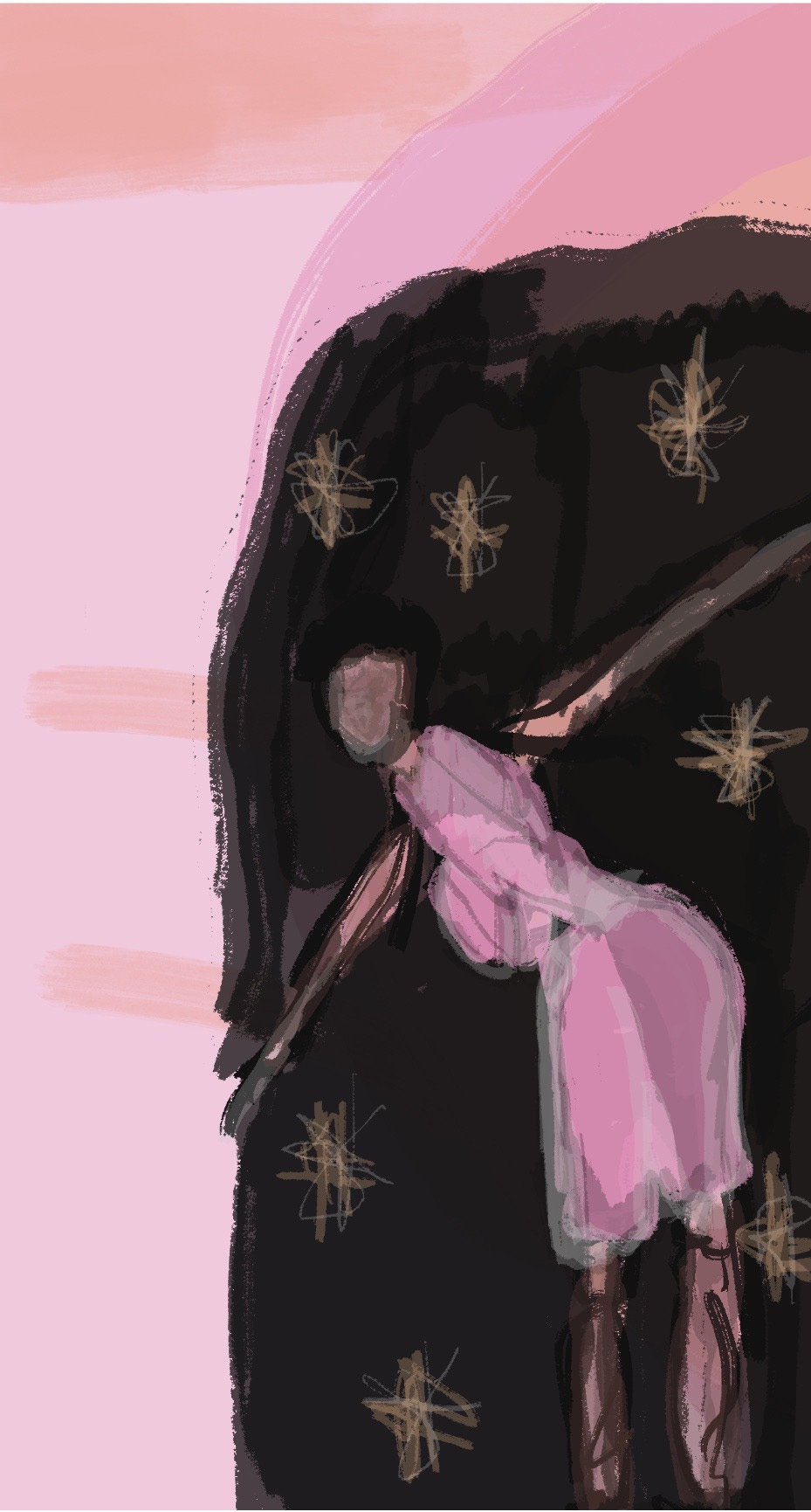Dear Friend,
I hope you don’t mind me sending the letter a little late this week. I also hope you had a good weekend, and that your week is going well so far.
We’ve had a very summery time over the last few days here in Paris. On the weekend, I went to my neighbourhood’s annual vide grenier (like a car-boot sale without the cars, or a yard sale without the yards) and bought a strange assortment of clothing items, books and an eccentric plant pot. I also went out out, as we like to say in the UK, to an outdoor dance festival in Pantin. (Pantin is a close suburb to the north of Paris, which I’ve written about before in our letters.)
Suddenly Paris seems to have switched into summer mode and on the cycle up to Pantin, the canal-side was full of people meeting, talking, drinking and — when we reached our destination — dancing! At one point on the journey, we passed a very happy looking group of young men and one of them just shouted: “la vie est belle, non?” (life is beautiful, eh?). Parisians are so much happier in the sun.
Not only was the sun out, but it was also a long weekend. In fact, this year, May has been a bonanza of jours fériés or Bank Holidays, more so than usual. I am self-employed, so I don’t always get to enjoy public holidays or France’s famously generous holiday allowance for its workers.
Standard paid leave in France is 30 days (5 weeks). This is actually quite similar to the minimum allowance in the UK for full-time workers, but a big contrast to the US, where there is no statutory minimum. When I worked as a tour guide in Paris, mostly working with American clients, people often had questions on this subject and couldn’t believe how much time off French employees got. The American tourists I met were often doing whistle-stop tours of Europe, trying to fit in as many sights as possible in, say, a week, to really make the most of their holiday allowance (maybe 10 days or two weeks), which is quite understandable. But even coming from a British perspective, there does seem to be more room to breathe holiday-wise due, I think, to a couple of key differences.
RTT or Réduction du Temps de Travail (Reduction of work time). RTT days are magical things. In the early 2000s, the French Government reduced the legal working hours per week from 39 to 35 hours. Employers were given the option to effectively keep their employers working 39 hours per week if they agreed to give them cumulative extra days off. And so it came to be that many employees got two extra days off per month, known as jours/journées RTT.
If the employee works more than 39 hours per week, in most cases they can claim pay for that overtime. And employees can also ask their employer to ‘buy back’ their unused RTT days. The effective salary increase from overtime is exempt from tax up to €7,500 per year.
Grandes vacances/vacances annuelles. Famously more emphasis is placed on the grandes vacances, the summer holiday period in France than in ‘Anglo-Saxon’ countries. Employees are actually obliged to take most of their holiday between May and October and with prior permission can take up to 24 days in one go. The annual leave is usually taken in August, though increasingly people are also taking their big break in July to spread out the holiday madness a bit
The people who choose to take their big break in July are called juillettiste, and their August-choosing equivalents, aoûtiens
Jours fériés — build a bridge and get over it
There are 11 public holidays (jours fériés), of which only one, la fête du Travail (May 1) is mandated to be paid. This is traditionally when big marches/protests are held (it was the kick-off of the famous 1968 student uprising). In reality, most employees are granted most of the jours fériés as days off, adding on to their annual leave and RTT days.
Unlike int he UK, however, there is no replacement day if a public holiday happens to fall on a weekend — it’s luck of the draw, hence the joy at the bonanza this year! As the days can fall midweek, people often choose to ‘ faire le pont’, (do the bridge) — taking extra days off between the public holiday and the weekend. Thanks to how the dates fall, Le Parisien even declared this ‘l’année des ponts’ (the year of the bridges).
As I mentioned, my experience of conventional employment in France is limited, but I can gather that making the most of all the statutory leave, RTT, public holidays, bridges etc., is quite a formidable task in itself, involving what seem to me to be very elaborate calculations.
In last week’s letter I mentioned a day spent in the park with my friend Rosie and her two young kids. Of the foreign friends I have here, she is the one who is perhaps most assimilated/embedded in French life. In this vein, she has got holiday-taking down to a fine art. At any one time, she will have at least three trips planned: say one week away in Spain, artfully arranged with jours fériés and ponts, then perhaps a long weekend in northern France by the sea, and a mini-break to the Netherlands with her friends. Rosie actually recently taught me the phrase ‘faire l’aqueduc’, to do the aqueduct i.e. joining up several public holidays to make a mega-bridge! Rosie is, to be clear, very hard-working and successful — she simply applies the same zeal and rigour to her holiday-taking. She was a guest on my friend Sutanya Dacres’ podcast, Dinner For One, where she talks — among other subjects — about the joys of holidays.
One last note on laïcité
Laïcité is the French principle of separation of Church (religion) and State. In general, the French are very attached to this principle. It was advocated during the 1789 Revolution and written into law definitively in 1905. The principle is used as a justification for the hostility that many French intellectuals express towards the wearing of a head-covering by Muslim women, often referred to imprecisely as ‘la voile’ (the veil). It has always struck me as quite incongruous that the separation of religion from state is expounded so loudly when it comes to la voile, and yet many of the public holidays are from the Christian calendar, like Pentecost this week, as well as Christmas and Easter.
Thirty-second book club
I finished Economics: A User’s Guide by Ha-Joon Chang and would say it absolutely filled the brief for a book to give a very comprehensive but accessible overview of the basic principles of economic theory. If you notice an elevated analysis of economics in my letters to follow, you’ll know why.
I have also recently discovered the podcast of a friend of mine, Nafkote Tamirat, author of the novel The Parking Lot Attendant. The series is called We’ll Always Have Paris and is also hosted by writers Chris Newens and Rachel Kapelke-Dale. Each week, the three hosts discuss a love story/love stories, fictional or non-fictional, set in Paris — think Amélie, the life of Joséphine Baker, the romance between Miles Davis and Juliette Gréco. It’s super-smart, well-researched and just a total hoot!
Thank you for reading this week’s letter about holidays and figurative bridges! Please do share this letter if you liked it or found it interesting.
I will write again this weekend. Have a good few days until then.
Yours,
Hannah







Thank you for this gorgeous reply! I adore the image of you singing Tina Turner to the highland cows. Babs sends you a big bisous from Paris
What a joy to read Darling Hannah! And your watercolours are full of energy... Particularly enjoyed Josephine Baker inspired black and pink being my favourite colour combo ( with perhaps a hint of gold)
I was thinking, in a week which saw the passing of a powerhouse and glorious role model , that of course of Tina Turner. The three exquisite performers of that irresistible combination of beauty, humour and talent. All three women similar in looks and vitality . That of Josephine Baker, Tina Turner and Beyonce. Tiny women physically but with Charisma like a lightening bolt. In the words of Matt Berry about John Ham " I cant get enough, the guys like crack!"
Ive been singing right across the Scottish highlands , chanelling my inner Tina... luckily no one can hear the catawalling but the open road and a few dazed Highland cows!
That brought me up to your descriptions of the French and their holiday arrangements and the easy " other ing " we can all practice if we dont blasted well check our attitudes! " The veil " of course in England always meant to become a Nun in aChristian order . The power of words Hannah, two words, " Muslim " and " Women " how did a holy belief and a female covered in esssentially a light material scarf become targets for such appalling anymosity.?
Live and let live, holiday whenever and where ever you will and practice ones holy , sacred faith in peaceable privacy.
Your writing always stirs up big thoughts Hannah .
Whats love got to do with it?
EVERYTHING.